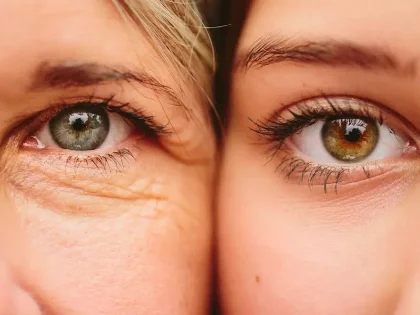The Benefits Of Meditation And Yoga For Stress Relief
The Benefits of Yoga and Meditation in Stress ReductionStress can be effectively reduced with meditation. You can learn to focus on your breathing, an image, or a mantra to help you get rid of distracting ideas and feelings from your mind. Additionally, yoga can help reduce stress. To make sure the practice is right for you, look for courses marked as mild, stress release, or beginners.
Be vigilant
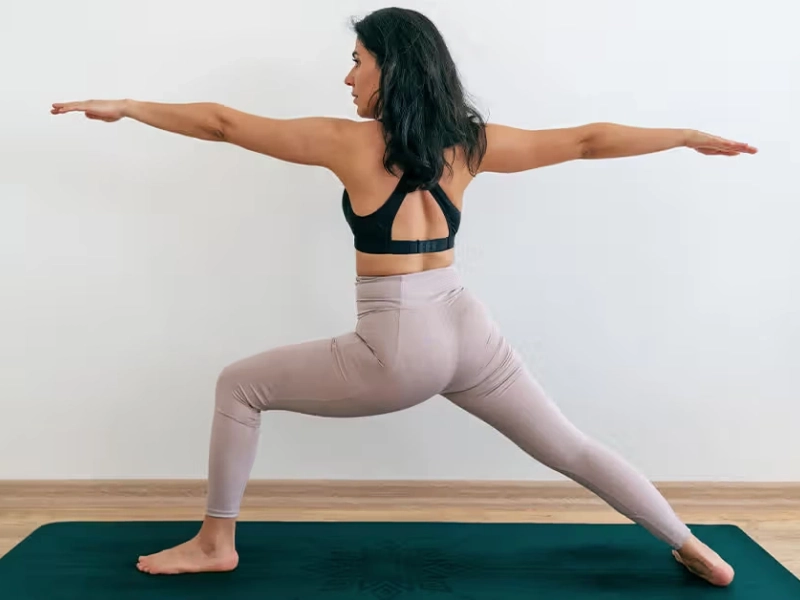 Being mindful involves embracing ideas and feelings as they emerge and keeping a careful eye on the here and now. This allows us to lower stress levels and control our mood more effectively.
According to studies, practicing mindfulness meditation can lower blood pressure and activate a region of the brain that regulates emotional reactions, both of which can help you avoid heart disease. It also reduces the possibility of substance abuse, improves self-control and promotes sleep.
While exercising at home or taking a class under stress may seem counterproductive, mindfulness cultivates attention span and refocuses the mind. It also promotes a healthy and optimistic outlook. Additionally, it may be helpful in reducing cortisol levels, which can be linked to anxiety and sadness. It can improve the mind-body connection and encourage relaxation by emphasizing stress-relieving breathing exercises and postures. It can also help with pain management and improve sleep quality. In response to stress, it may even decrease a person's propensity to clench their jaw or bite their nails.
Being mindful involves embracing ideas and feelings as they emerge and keeping a careful eye on the here and now. This allows us to lower stress levels and control our mood more effectively.
According to studies, practicing mindfulness meditation can lower blood pressure and activate a region of the brain that regulates emotional reactions, both of which can help you avoid heart disease. It also reduces the possibility of substance abuse, improves self-control and promotes sleep.
While exercising at home or taking a class under stress may seem counterproductive, mindfulness cultivates attention span and refocuses the mind. It also promotes a healthy and optimistic outlook. Additionally, it may be helpful in reducing cortisol levels, which can be linked to anxiety and sadness. It can improve the mind-body connection and encourage relaxation by emphasizing stress-relieving breathing exercises and postures. It can also help with pain management and improve sleep quality. In response to stress, it may even decrease a person's propensity to clench their jaw or bite their nails.
Inspiration
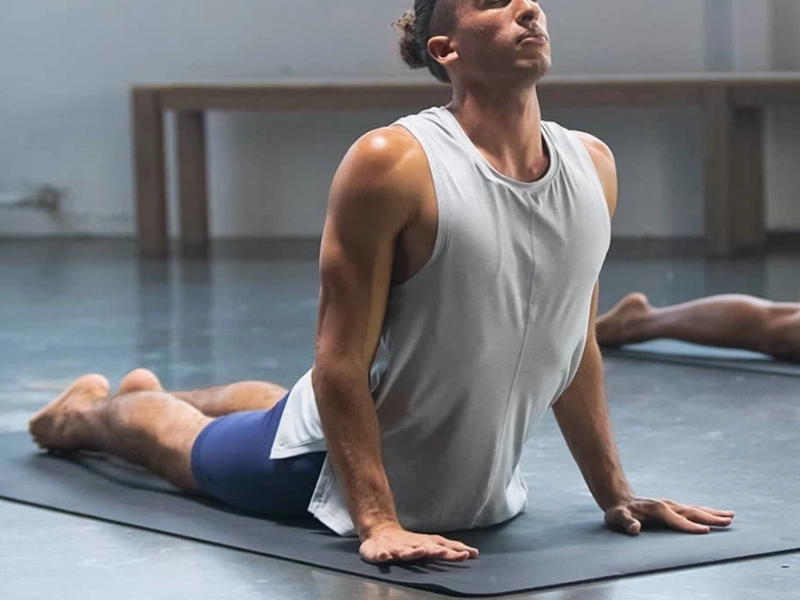 By reducing the activity of the nervous system, breathing exercises help you manage your emotions. Breathing exercises are convenient for any time and place, which makes them great tools for managing stress. A basic breathing technique known as "cyclic sighing" involves taking a breath until your lungs are half full, then letting go until they are nearly empty. A 2020 study found that this method reduces anxiety, increases positive mood, and slows heart rate variability during sleep.
By reducing activity in the area of the brain responsible for processing emotions, yoga and meditation help you relax and become less reactive. You can prevent negative ideas from harming your mental health by practicing mindfulness, acceptance, and detachment when they arise.
Talk to a therapist if your daily yoga or meditation practice isn't relieving all your tension. BetterHelp's more than 30,000 certified counselors are available to talk to you and help you manage your emotions.
By reducing the activity of the nervous system, breathing exercises help you manage your emotions. Breathing exercises are convenient for any time and place, which makes them great tools for managing stress. A basic breathing technique known as "cyclic sighing" involves taking a breath until your lungs are half full, then letting go until they are nearly empty. A 2020 study found that this method reduces anxiety, increases positive mood, and slows heart rate variability during sleep.
By reducing activity in the area of the brain responsible for processing emotions, yoga and meditation help you relax and become less reactive. You can prevent negative ideas from harming your mental health by practicing mindfulness, acceptance, and detachment when they arise.
Talk to a therapist if your daily yoga or meditation practice isn't relieving all your tension. BetterHelp's more than 30,000 certified counselors are available to talk to you and help you manage your emotions.
Relaxation
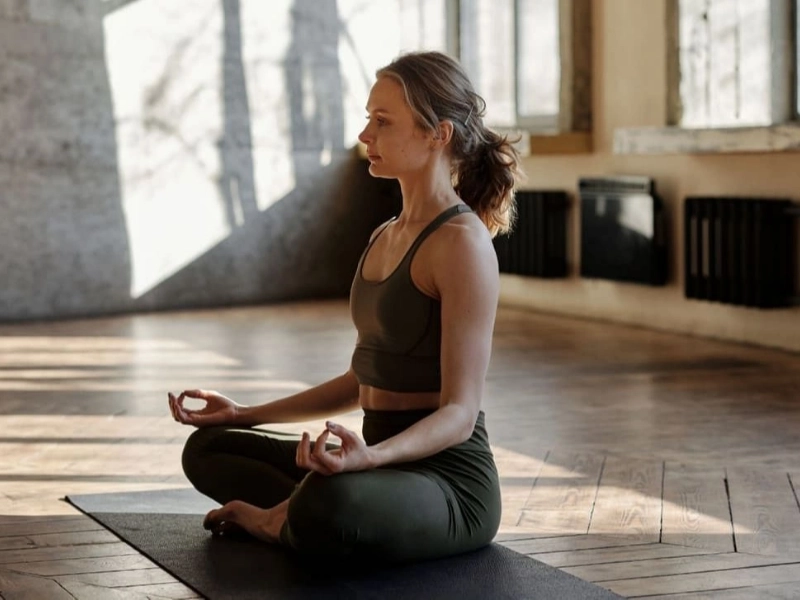 Yoga and meditation both have relaxing effects on the body and mind, making them effective ways to reduce stress. It reduces physiological responses to anxiety, such as nervousness, elevated blood pressure, and rapid heartbeat. This improves people's overall emotional well-being and helps them better control stress levels.
Natural painkillers called endorphins are released by the brain when you are relaxed and this also lowers stress hormones. This relieves discomfort associated with migraines, fibromyalgia, and persistent pelvic pain. It also facilitates sleep and helps reduce anxiety and depressive symptoms.
Mindfulness meditation, gentle poses and deep breathing are among the yoga techniques that help people relax. It also teaches people how to practice detachment and acceptance, which can help them deal with negative feelings and thoughts. Maintaining a regular meditation practice can also help treat long-term conditions like diabetes, where controlling blood sugar levels can lead to stress. It is better to meditate every day, because the more often you do it, the better.
Yoga and meditation both have relaxing effects on the body and mind, making them effective ways to reduce stress. It reduces physiological responses to anxiety, such as nervousness, elevated blood pressure, and rapid heartbeat. This improves people's overall emotional well-being and helps them better control stress levels.
Natural painkillers called endorphins are released by the brain when you are relaxed and this also lowers stress hormones. This relieves discomfort associated with migraines, fibromyalgia, and persistent pelvic pain. It also facilitates sleep and helps reduce anxiety and depressive symptoms.
Mindfulness meditation, gentle poses and deep breathing are among the yoga techniques that help people relax. It also teaches people how to practice detachment and acceptance, which can help them deal with negative feelings and thoughts. Maintaining a regular meditation practice can also help treat long-term conditions like diabetes, where controlling blood sugar levels can lead to stress. It is better to meditate every day, because the more often you do it, the better.
Self knowledge
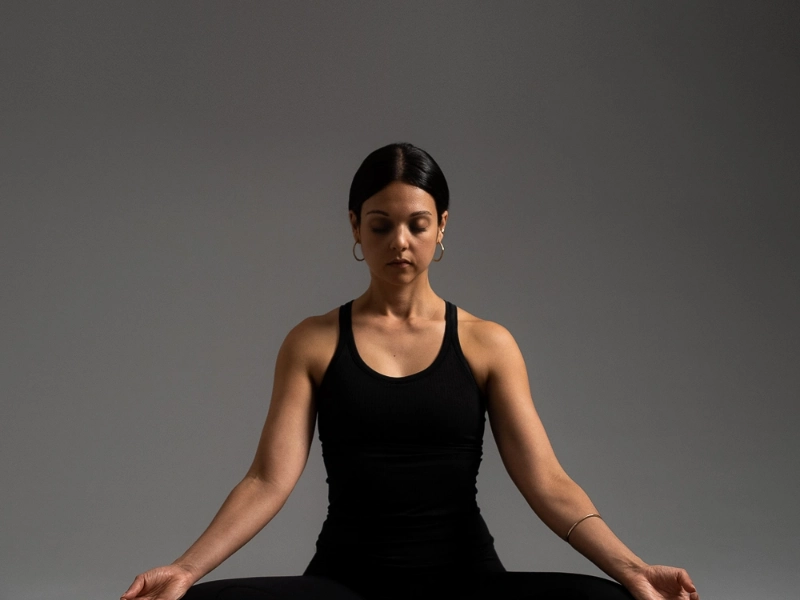 Having self-awareness is linked to several beneficial outcomes. However, the phrase is conceptualized slightly differently by different studies, and it is crucial to remember that self-awareness can sometimes have unfavorable effects. By examining a variety of different findings, this two-part study aims to expand the current understanding of self-awareness and its implications. An initial set of possible questionnaire items was categorized and expanded into a 38-item self-report inventory by expert focus groups in Study 1.
To create a matched sample, participants were chosen from business and therapy students and non-therapeutic students. They were asked to rate their frequency of participation in six mindfulness and self-awareness practices: journaling, yoga, meditation, prayer, and counseling. Next, participants were classified based on their level of self-awareness and how this awareness affected their daily activities (such as proactive work and introspective self-improvement). Additionally, a subscale was assessed to capture the emotional costs associated with self-awareness.
Having self-awareness is linked to several beneficial outcomes. However, the phrase is conceptualized slightly differently by different studies, and it is crucial to remember that self-awareness can sometimes have unfavorable effects. By examining a variety of different findings, this two-part study aims to expand the current understanding of self-awareness and its implications. An initial set of possible questionnaire items was categorized and expanded into a 38-item self-report inventory by expert focus groups in Study 1.
To create a matched sample, participants were chosen from business and therapy students and non-therapeutic students. They were asked to rate their frequency of participation in six mindfulness and self-awareness practices: journaling, yoga, meditation, prayer, and counseling. Next, participants were classified based on their level of self-awareness and how this awareness affected their daily activities (such as proactive work and introspective self-improvement). Additionally, a subscale was assessed to capture the emotional costs associated with self-awareness.


